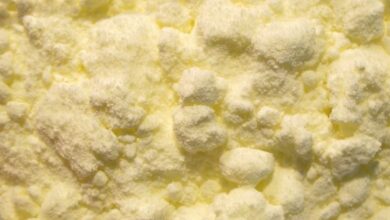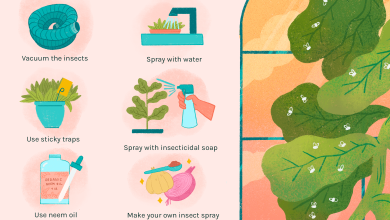What are aphids and how to eliminate them?
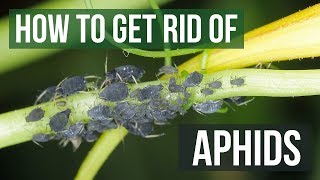
Aphids are parasitic insects that cause great damage to the plants that host them, since they pierce and suck the sap from both the stems and the leaves; becoming one of the most destructive pests. Hence the importance of completely eliminating them from our garden, orchard or plot.
Aphids or better known as aphids, are small insects with a little varied morphology and taxonomically they are animals that are not related to fleas. They parasitize the plants they feed on, leading them to a state of atrophy and weakening that endangers their existence.
They usually arrive when the winter cold ends, when the plants begin to wake up and give tender shoots. For this reason, the preferred seasons of this pest range from spring to autumn.
Reproductive and morphological characteristics
The average lifespan of these insects is known to be one month. Each female aphid reproduces asexually; that is, they do not need the intervention of a male.
Something that must be taken into account is its high reproductive rate, with each female being able to procreate an estimated 100 offspring . For this reason, they are insects that can quickly cover a plant, in hundreds of thousands of individuals, and become a plague of alarming proportions.
These invertebrate animals have a biting-sucking mouthpart, with which they pierce the plant and adhere to it to extract its sap. They are usually small in size, a few millimeters, and their body is ovoid in shape.
Some can be differentiated by their color, such as the white aphid, green, red, black aphid and others can have spots or specks. Likewise, among the known types of aphids there are some species without wings and others with wings. In these cases, the aphids have two pairs of small, membranous and transparent wings.
On the other hand, there are monogaphos varieties ; that is, specific aphids that feed on certain plant species, such as the ashy apple aphid and the black bean aphid. While others, such as the yellow aphid, have the ability to indiscriminately attack various types of plants and a wide variety of crops such as sorghum, sugar cane, oats, barley, wheat, corn and rice.
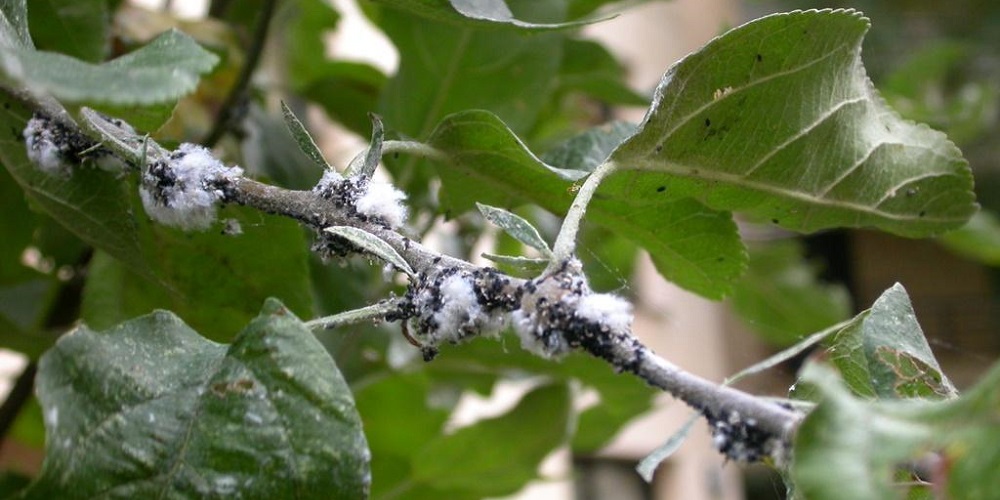
A potentially damaging pest
It is a potentially destructive pest for agriculture , horticulture, forestry, gardens and green spaces, as it causes serious damage to plantations and ornamental species.
The feeding habits of aphids have detrimental effects on vegetation, both aesthetically, as well as in health and production. In this sense, they can weaken the plant, stunt it and slow down its growth. They can also deform leaves, discolor them and stunt new shoots; at the same time that they reduce the production and yield of the attacked crops.
Aphids on plants, especially when heavy infestations occur, produce a sticky, sugary secretion called honeydew. This molasses makes the leaves and fruit sticky, which detracts from the commercial value of the crop. In addition, it is a sweet substance that attracts ants and favors the growth of the bold fungi; what makes the fiber dirty, prevents photosynthesis and also the respiration of the plant.
On the other hand, these plant pests can be vectors of viruses. When aphids stick their sucking apparatus to suck the sap in various plants, they can transmit pathogens and the cure for these viruses is still unknown. Given this, the best alternative is to prevent infestations.
Recommendations for its control
In order to be able to control this pest and have proper management on how to eliminate the aphid, it is important to carry out frequent monitoring that helps in the early detection of infestations. Aphid colonies multiply at a rapid rate, so discovering the infestation early may make it easier to eliminate.
To do this, stems, buds, flower buds and young shoots should be inspected regularly. Similarly, it is advisable to make sure to carefully check the underside of the leaves and monitor the temperatures in which the aphids are most active; these temperatures can range from approximately 24 to 26°C.
On the other hand, the indiscriminate use of nitrogenous fertilizers, a product preferred by aphids, should be avoided; so it is recommended to use only the amount indicated by the manufacturer.
Likewise, vegetable sprouts could be grown inside a greenhouse or under protective covers in a garden. It is also advisable to use a strong jet of water, in the case of robust plants, to break the insect’s mouthparts and thus prevent them from feeding. If there are dense canopies on the trees, they could be pruned to reduce their habitat.
Another way to control aphids efficiently is to provide a habitat for the natural predators of this pest; such as lacewings, ladybugs and parasitic wasps. For this reason, a broad-spectrum insecticide for plants that affects their population should not be used; so the most advisable thing is to specifically choose an insecticide for aphids.
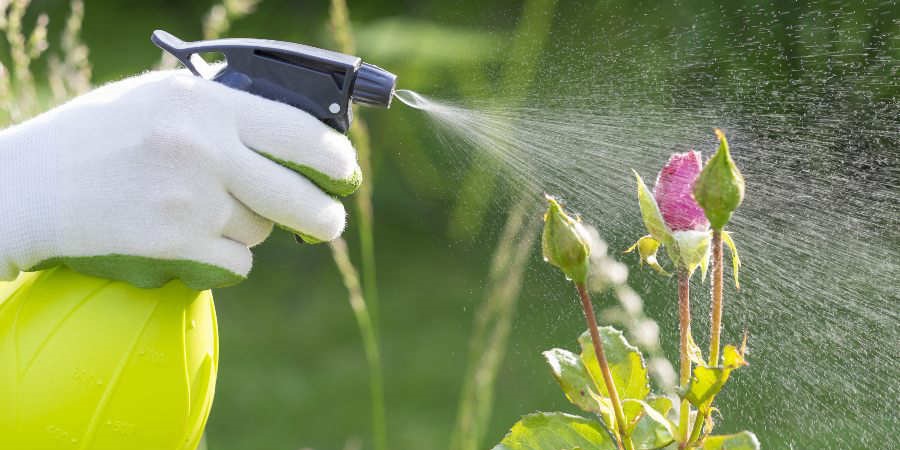
Home remedies for aphids
When what is sought is to minimize the ecological impact when spraying with chemical insecticides, the question arises: how to eliminate pests in plants naturally? To do this, there are some remedies for aphids where natural elements such as garlic and vinegar are used; which act efficiently to control and combat this pest.
You can prepare a homemade garlic infusion and spray the affected plants with it. Garlic is a powerful antiparasitic, antibacterial and natural insecticide.
Likewise, regardless of whether the plant is planted directly in the ground or in pots, it can also be fumigated with vinegar to prevent infestation, since vinegar emits a repellent odor that keeps these insects away. For this, rather than combat, vinegar is preferably used as a preventive remedy.
Carrying out a timely diagnosis of the infestation problem will help reduce the consequences of this harmful pest. For this reason, prevention is the key to fighting these insects.

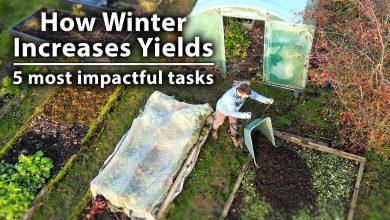
![Photo of Gloxinia: [Characteristics, Cultivation, Care and Disadvantages]](https://www.complete-gardening.com/wp-content/uploads/2022/08/gloxinia-characteristics-cultivation-care-and-disadvantages-390x220.jpg)
